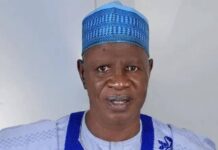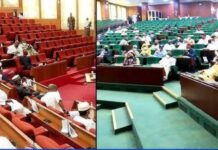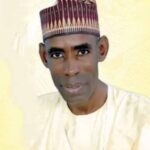The myth of the uber-wealthy,
by Osmund Agbo
Deeply rooted in biblical lore is the striking analogy of a camel passing through the eye of a needle, portraying the daunting challenge for the wealthy to make heaven. Initially, I grappled with this notion, clinging to the religious teaching that wealth signifies divine favor. However, as time unfurled its layers, a profound revelation pierced through the fabric of conventional wisdom.
The rich man depicted in the scripture isn’t merely the affluent homeowner in Asokoro or the jet-setting elite with an impressive car collection. No, we’re referring to the echelons of the global elite—the top one percent whose assets rival those of entire nations, affording them the luxury of commanding private armies should they so choose. These individuals epitomize the concept of the uber-wealthy, navigating a world where opulence knows no bounds.
In our societal narrative, we often celebrate the rags-to-riches stories, attributing great wealth to hard work, intelligence, and meritocracy. We applaud those who climb the ladder of success through sheer determination and exceptional talent. Yet, behind this glossy facade lies a stark reality—one where many fortunes are built on the backs of others, exploiting loopholes and engaging in unethical practices.
While Silicon Valley luminaries like Elon Musk, Bill Gates, and Mark Zuckerberg are innovators who develop disruptive technologies that change the world, resulting in stupendous financial gains, they stand as outliers among the world’s wealthiest. For many others, their opulent fortunes are steeped in dubious practices and undeserved privileges, shrouded in secrecy to conceal their ethical transgressions.
The correlation between societal primitiveness and the emergence of obscure billionaires is profoundly unsettling. We’ve recently heard the tale of a former recharge card seller who, within a space of a few years, ascended to billionaire status after working in Aso Rock, even acquiring his own private jet. The former Emir of Kano and one-time CBN governor, while criticizing the system, once referred to an “inexperienced boy who had never worked anywhere but owns a private jet.”
Nigeria is a captivating place indeed. We’ve all witnessed their transformation. They once dwelled in our neighborhoods, just like everyone else, struggling to make ends meet. Yet, in the blink of an eye, they ascended to billionaire status, residing in opulent mansions and surrounded by a retinue of aides. They are the epitome of the nouveau-riche.
But it doesn’t end with individual anecdotes. Nigeria’s landscape is scarred by tales of grand-scale fraud, epitomized by the oil subsidy debacle where fictitious transactions involving non-existent ships ran rampant. These are not fables but grim realities, underscoring the deep-seated issues within our economic framework.
READ ALSO: When hunger threatens, morality becomes a luxury, by Osmund Agbo
The recent demise of a prominent bank executive shed light on yet another crisis: Forex round-tripping. This egregious practice not only exploits official channels for personal gain but also perpetuates a vicious cycle of currency devaluation, disproportionately impacting ordinary citizens and legitimate businesses. The Tinubu administration assured us that the Central Bank of Nigeria’s managed float system would address the persistent exchange rate gap.
It’s imperative to confront the stark truth: a select few wield immense economic power, derived not from merit but from exploitation and manipulation. While they luxuriate in opulence, the majority grapple with the harsh realities of poverty and deprivation. Nigeria continues to churn out billionaires at an alarming rate, even as the nation hurtles towards overtaking India as the country with the highest poverty levels. If many of Nigeria’s billionaires were in China today, they might face severe penalties, possibly even the death penalty, for the extent of economic sabotage they have perpetrated.
However, we will refrain from vilifying those who have genuinely built their businesses from the ground up, investing years of hard work and dedication to achieve remarkable success. Yet, we cannot overlook the reality that amassing such vast fortunes often involves unsavory practices – from bending rules to stifling competition and exploiting labor.
Regrettably, these actions, once considered vices, have become normalized as part of the game. While many of the uber-wealthy are undoubtedly astute business minds, the crucial distinction lies in those solely driven by greed, with little regard for the welfare of their country or fellow citizens
But amidst the gloom, there flickers a beacon of hope. As inequality deepens and wealth chasms widen, a swelling chorus of voices have risen in defiance across the country. From grassroots activists rallying for economic justice to fearless individuals championing systemic change, there’s a growing urgency to dismantle the structures perpetuating this inequity.
Here, the media wields unparalleled power. Through fearless investigative journalism, reporters have the ability to expose corruption and hold the powerful to account, shining a piercing light into society’s darkest recesses. It is through their relentless pursuit of truth that the nefarious deeds of the uber-rich are thrust into the spotlight, compelling society to confront the moral decay festering within its core.
Yet, the onus ultimately falls on all of us to demand a fairer, more equitable society. Whether through grassroots activism, political engagement, or conscientious consumer choices, each individual has a pivotal role to play in challenging the status quo and forging a world where wealth is not synonymous with moral worth.
This piece should serve as a sobering reminder of the corrosive influence of unchecked greed and privilege. It’s a narrative steeped in exploitation and injustice, where the relentless pursuit of profit eclipses all notions of decency and compassion. But it’s also a call to action – a call to rise up against the forces of greed and entitlement, and to build a future where prosperity is shared by all, not hoarded by a privileged few.
Osmund Agbo is the author of ‘Black Grit, White Knuckles: The Philosophy of Black Renaissance and an upcoming novel, “The Velvet Court: Courtesan Chronicles”.
Disclaimer
The opinions and views expressed in this article belong solely to the original author and other contributors. They do not necessarily reflect the official policy or opinions of Neptune Prime.
Follow the Neptune Prime channel on WhatsApp:
Do you have breaking news, interview request, opinion, suggestion, or want your event covered? Email us at neptuneprime2233@gmail.com





